The Horizons team features many influential Twitter users. This curates a wealth of insights, knowledge, and information about transformation in health and care from other thought leaders across the world. (Tip: to read an article or watch a video mentioned in a tweet, click on the blue text. To view the original tweet, click on the image).
The School for Change Agents
Have you heard the news? The School for Change Agents is back on 14th February! There is less than two weeks to go until the School starts, so get signed up now!
If you'd like to learn more about how to sign up and what to expect from the School, check out this blog by @Anisah_Majothi.
Thank you to the #S4CA community for their brilliant support as ever - see what @ChristinaHarrisonRN and @gvhawtin have to say about their experiences of School.

#SolvingTogether
You're welcome to join the tweet chat on Wednesday 9 February between 7pm and 8pm discussing the #SolvingTogether challenge: How can we best support people waiting for hip & knee operations?

On Wednesday this week the team facilitated a brilliant connect session for #SolvingTogether. It was a great opportunity for anyone from anywhere to find out more about the #SolvingTogether platform and to share ideas for addressing the challenge of supporting hip and knee replacement operations.
If you want to get involved and have any ideas that you would like to share on this, please visit the #SolvingTogether platform.
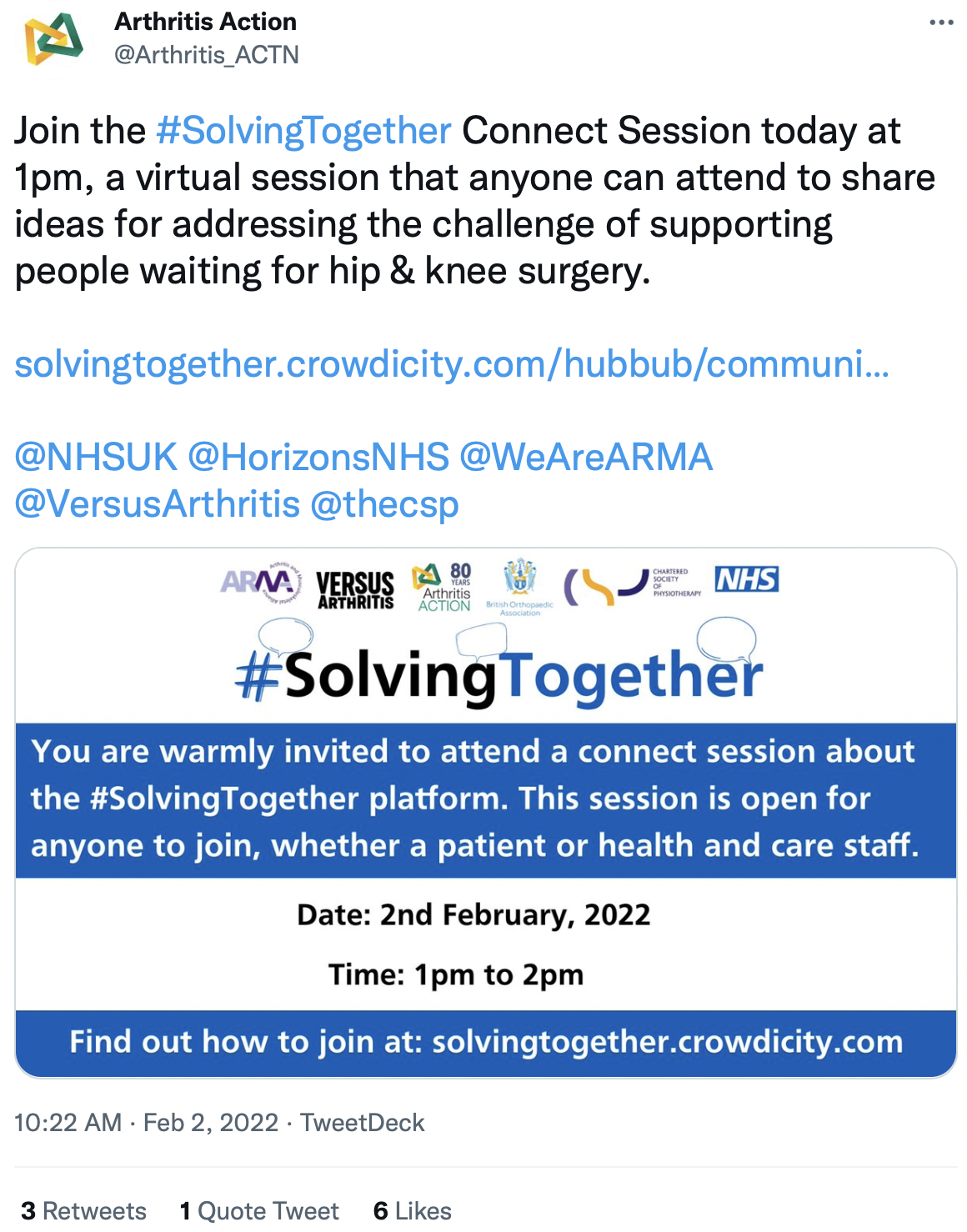
#Caring4NHSPeople

#VirtualCollaborate
A community manager is someone who creates energy and builds momentum with diverse groups. To find out more check out this brilliant sketchnote!
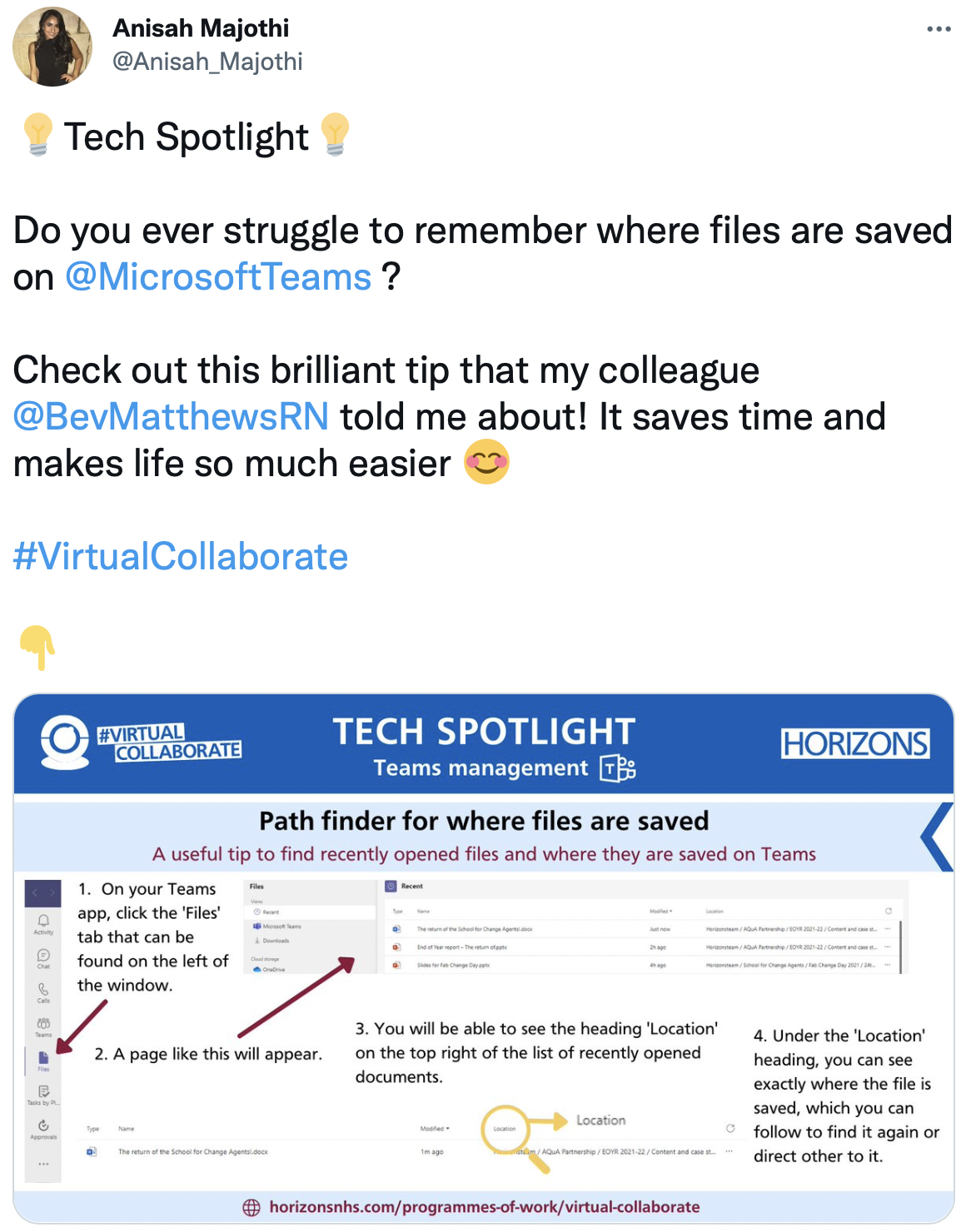


Team Updates

Wellbeing
Here are 20 templates you can follow to say no (nicely) to just about anything and politely escape from all sorts of non value-adding, misdirected or low priority in terms of your bigger picture asks. 
Multitasking makes us stupid but it's SO hard not to do it. Four strategies:
1) chunk your time by your average time of ability to focus
2) turn devices off straight away
3) make time to get refreshed often
4) be present when you show up
For more insight on this click here.

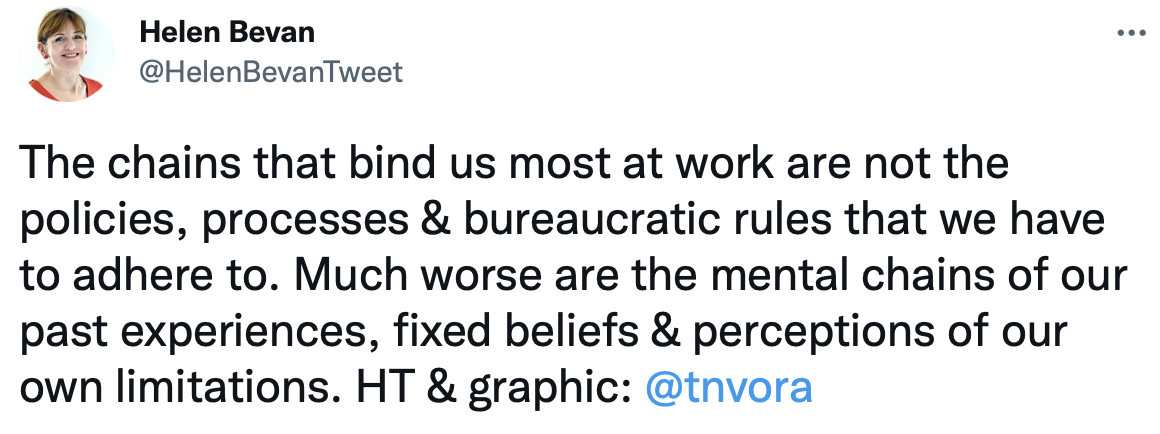
Improvement
Here is a superb thread Helen shared by @hesham_abdalla on QI efforts to get patients home from hospital when they're ready. It reminded Helen that often it's not the big process design pieces that matter most but the "grout"; relationships & connections. Read about 'honouring the grout'.
The best workplaces are ones where people can constantly experiment, fail if necessary and keep learning and improving. PDSA cycles can play an important part in this and here’s a great PDSA chart from @DGFTimprovement. Click here to see the original tweet.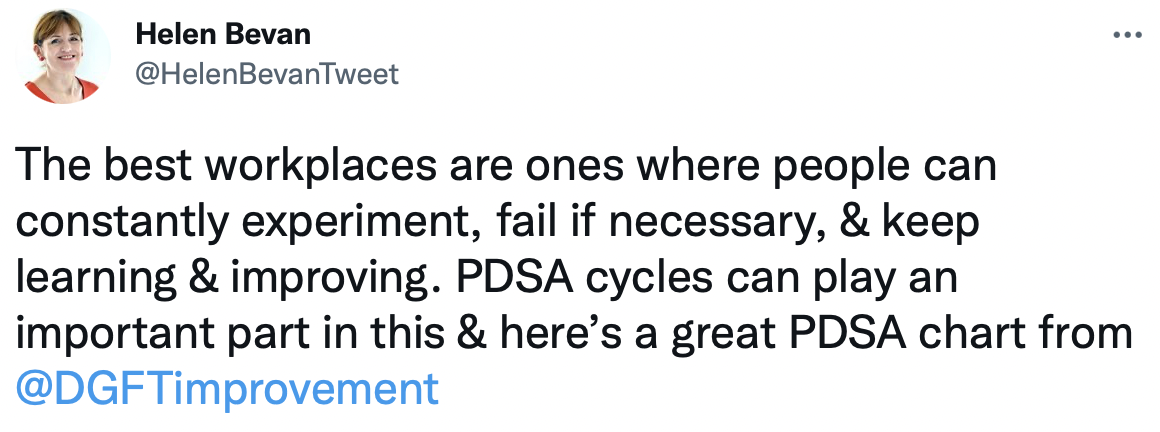
We use "1st order thinking" for most of our decisions about change, based on our previous experience. For big, transformational change, we need second order thinking: considering the longer term implications of actions we take now. For more insight click here.
"Do radical things at a non-radical scale": this is how to get better outcomes for a team, organisation or system by building experimentation, learning and improvement into the work that everyone does, every day. Click here to find out more.
One of the most important aspects in a change initiative is creating a sense of progress. In studies, people say their best days are when they feel they're moving forward in their work. Doing small change experiments gives us immediate feedback on progress. Graphic from @KotterInc.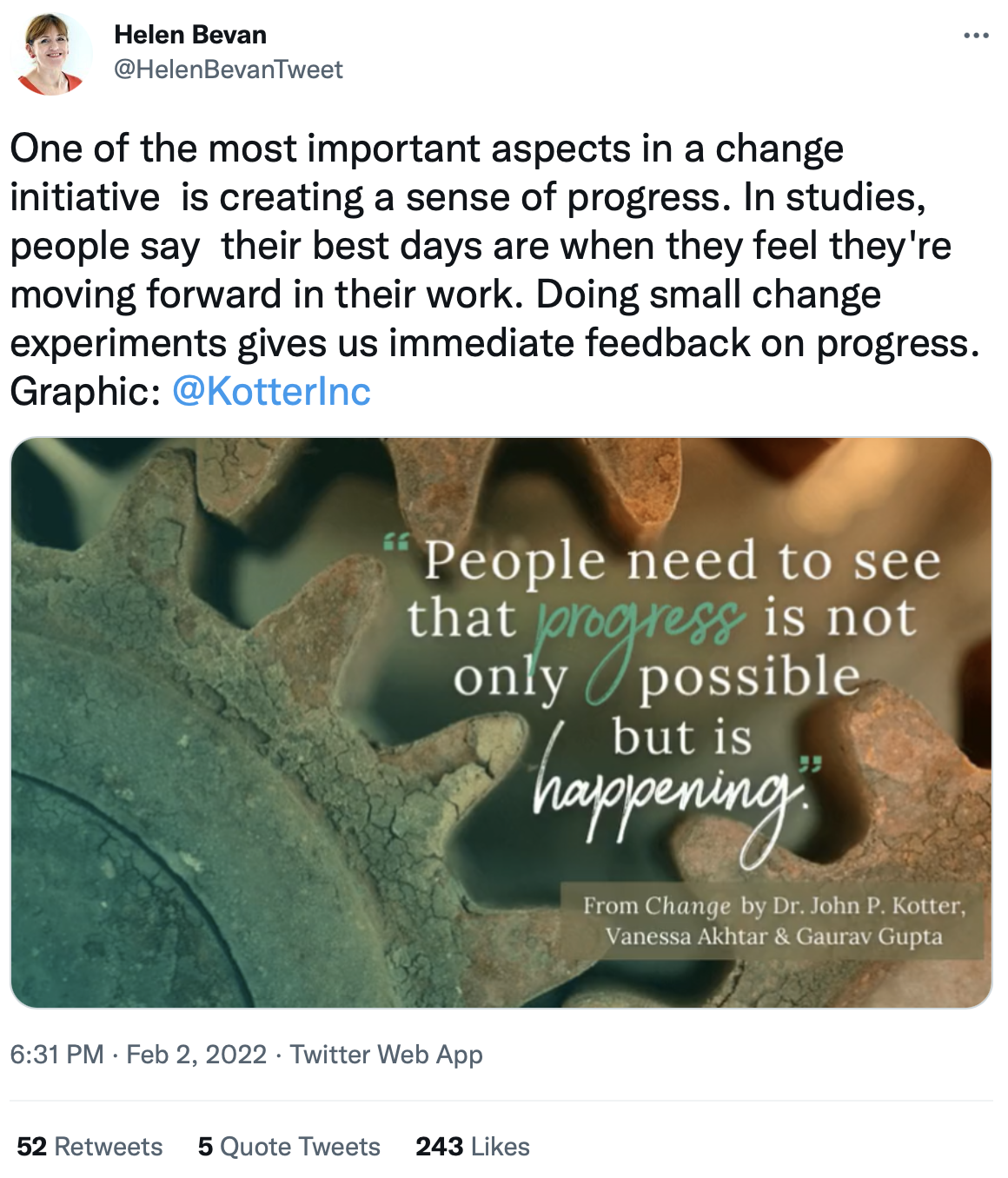
Every leader of change or improvement needs to be able to use their power to make a difference. Here's a free eBook from @julianstodd on leadership and power. Use it to review the shape of the power that you hold and the potential it gives you.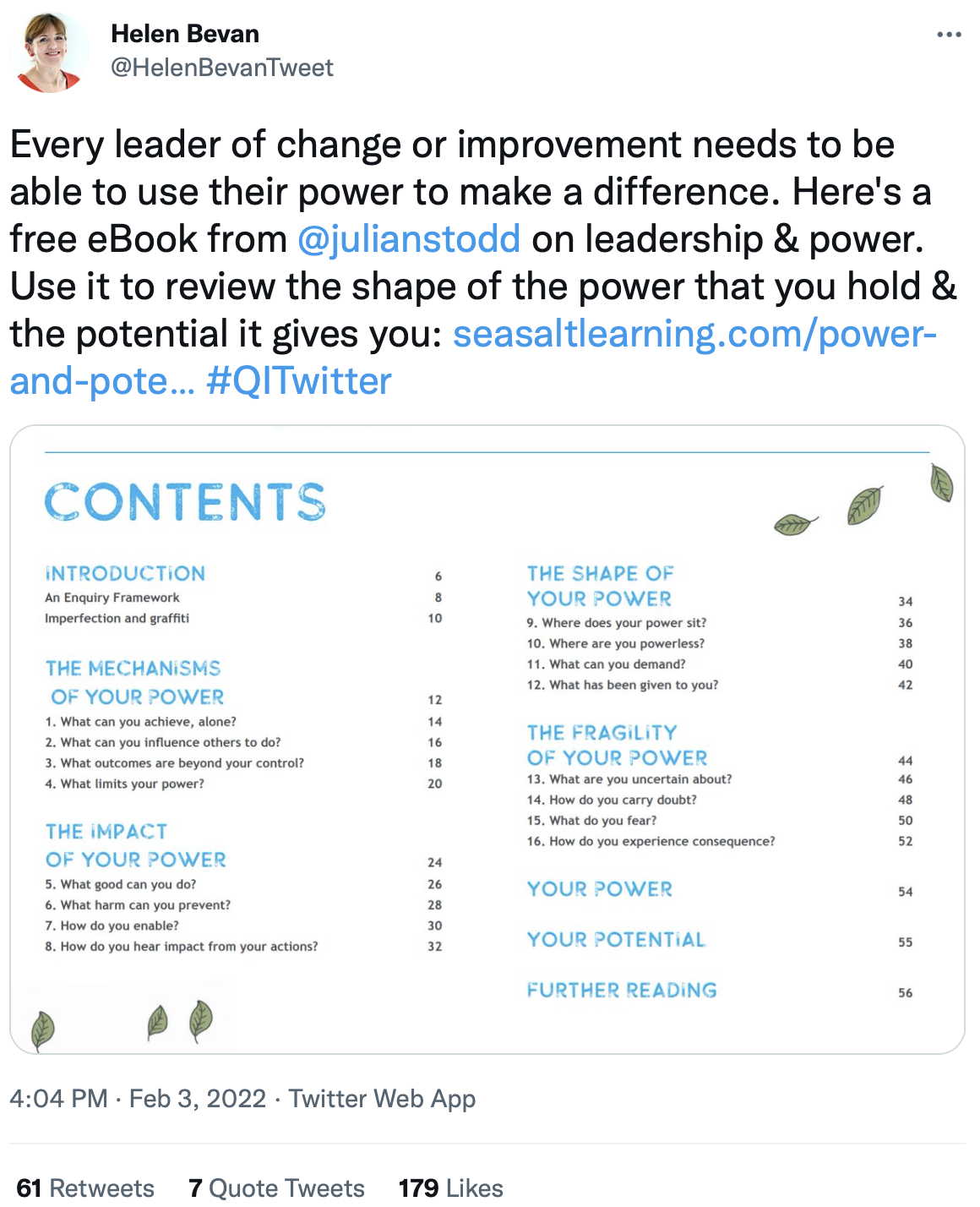
Here is a great podcast and transcript on Chip Heath's new book, "Making Numbers Count: The Art and Science of Communicating Numbers". Key message: we have to present data in ways that connect with emotions because emotions are what drive us to act. 
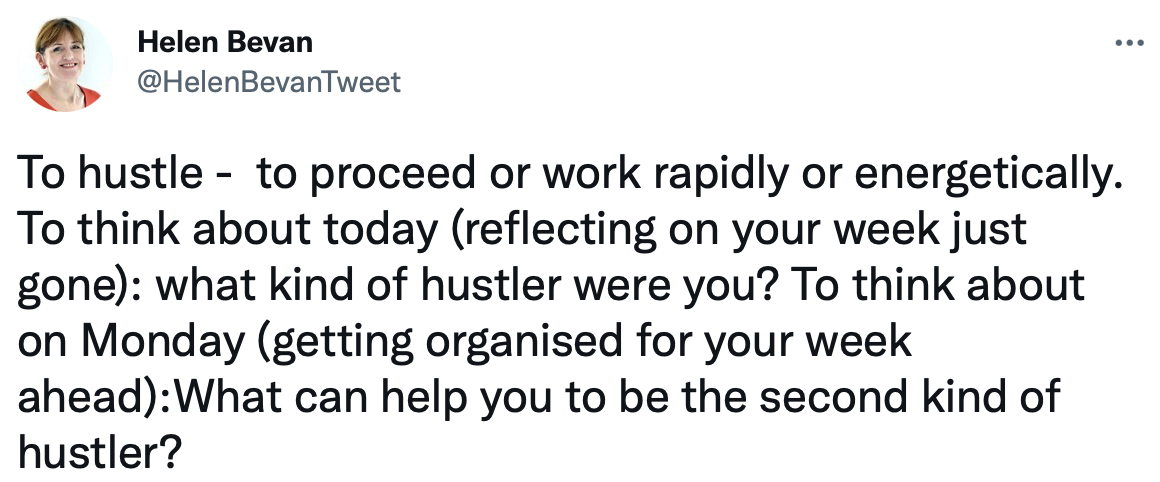



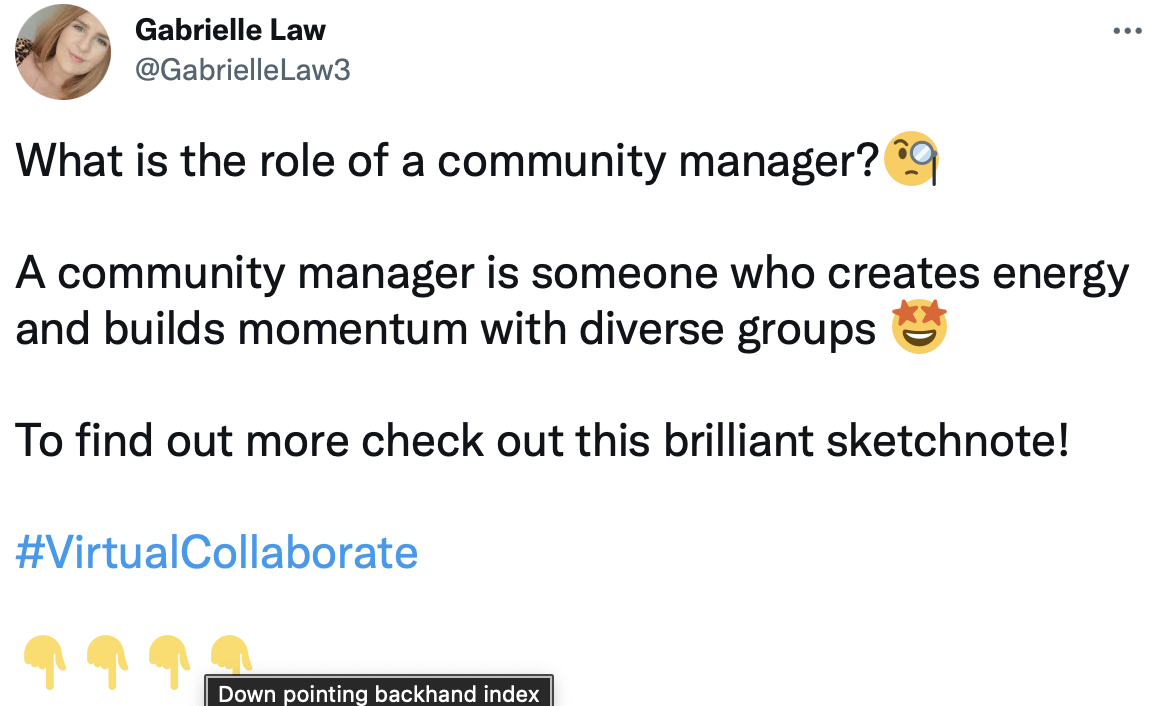






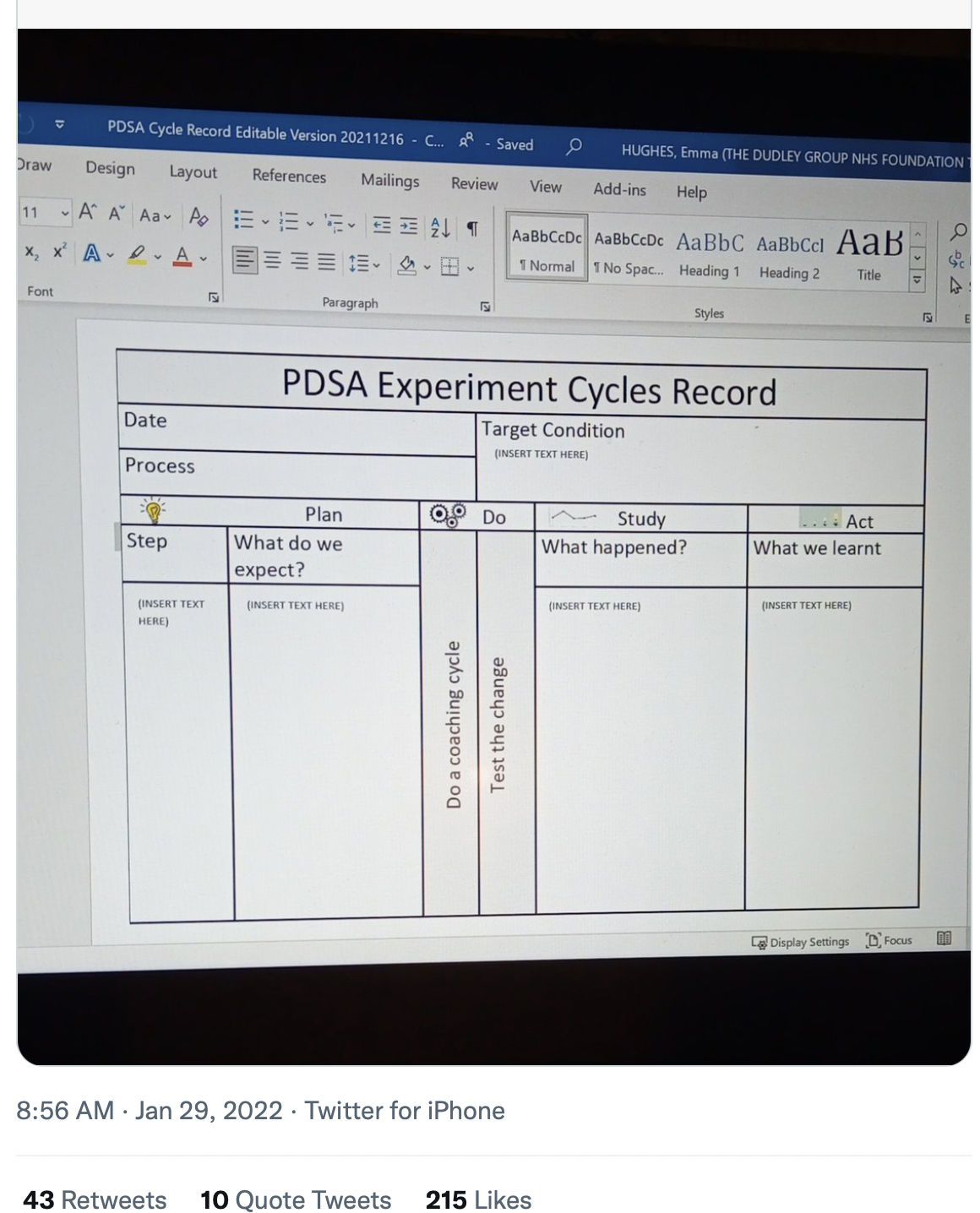



/Passle/5a5c5fb12a1ea2042466f05f/MediaLibrary/Images/6168334917af5b10f4bf1d30/2022-04-14-15-27-52-040-62583d78f636e9115805b2d5.png)
/Passle/5a5c5fb12a1ea2042466f05f/MediaLibrary/Images/6168334917af5b10f4bf1d30/2022-08-05-09-59-36-465-62ecea08f636e906acfed639.jpg)
/Passle/5a5c5fb12a1ea2042466f05f/MediaLibrary/Images/6168334917af5b10f4bf1d30/2022-07-28-14-57-17-405-62e2a3cdf636e9180c9835cb.png)
/Passle/5a5c5fb12a1ea2042466f05f/MediaLibrary/Images/6168334917af5b10f4bf1d30/2022-07-20-10-16-56-533-62d7d618f636ea07987f6668.png)
/Passle/5a5c5fb12a1ea2042466f05f/MediaLibrary/Images/6168334917af5b10f4bf1d30/2022-07-15-09-55-32-858-62d13994f636ea1398e71aa9.jpg)